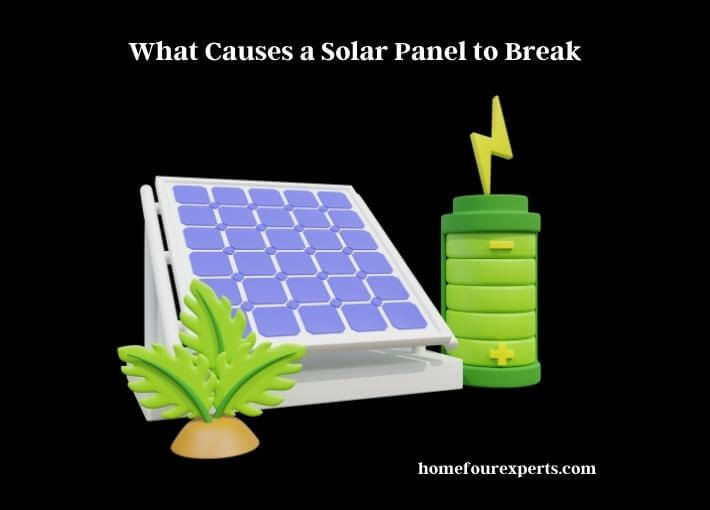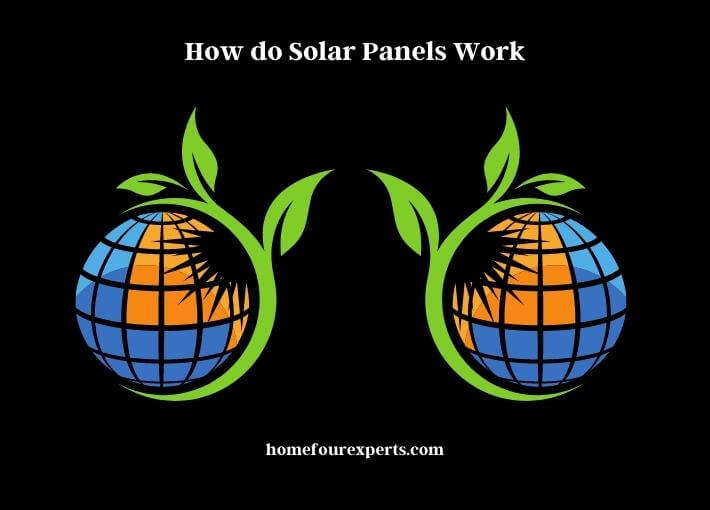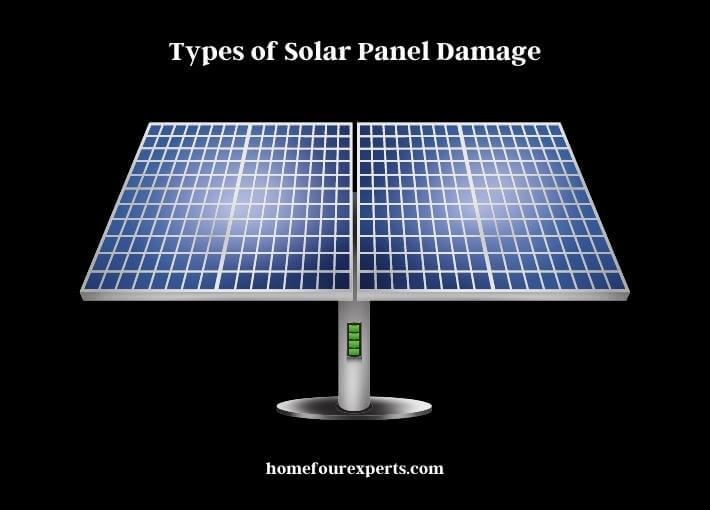Solar panels are an increasingly popular source of renewable energy for homes and businesses. They are a cost-effective and environmentally friendly way to generate electricity, but they can also be susceptible to damage from various sources. Understanding the common causes of solar panel damage can help you take steps to prevent it and ensure that your panels continue to work efficiently for years to come.

Investing in solar panels is a great way to make a positive impact on the environment and reduce your energy bills. By understanding the potential causes of solar panel damage and taking steps to prevent it, you can ensure that your investment in clean energy continues to pay off for years to come.
How do Solar Panels Work?
Solar panels are made up of photovoltaic (PV) cells, which convert sunlight into direct current (DC) electricity. These cells are typically made of silicon, a semiconductor material that absorbs photons from the sun’s rays and releases electrons, creating an electric current.
When sunlight hits the surface of a solar panel, it excites the electrons in the PV cells, causing them to flow in a particular direction. The flow of these electrons creates a direct current (DC) electricity that can be used to power a wide range of devices.

In order to use the electricity generated by solar panels, it must be converted into alternating current (AC) electricity, which is the type of electricity that is used in homes and businesses. This is done using an inverter, which converts the DC electricity produced by the solar panels into AC electricity that can be used to power appliances, lighting, and other electrical devices.
Once the AC electricity has been produced by the inverter, it can be used immediately in the home or business where the solar panels are installed. Any excess electricity that is generated can be stored in batteries or fed back into the electrical grid, depending on the system setup.
If you want to know do I need HOA approval for solar panels? Click here to know the answer.
Types of Solar Panel Damage
There are several types of solar panel damage, including physical damage, environmental damage, electrical damage, and manufacturing defects.
Physical Damage
Physical damage to solar panels can occur in many ways, including hail, impact, and vandalism.
Hail Damage
Hail can cause significant damage to solar panels. The size and speed of the hailstones will determine the level of damage. Hail can cause cracks or punctures in the panel’s glass, which can lead to a drop in the panel’s efficiency.

Impact Damage
Impact damage can be caused by various objects, such as falling branches or debris. Even small cracks in the panel’s glass can reduce the panel’s efficiency.
Vandalism
Vandalism can take many forms, from graffiti to intentional damage. Damage caused by vandalism can range from small cracks to broken panels.
Environmental Damage
Environmental damage can be caused by temperature fluctuations, corrosion, and UV degradation.
Temperature Fluctuations
Extreme temperatures, both hot and cold, can cause damage to solar panels. High temperatures can cause the panel’s materials to expand, while low temperatures can cause the materials to contract. These fluctuations can cause cracks or warping in the panel’s structure.
Corrosion
Corrosion can occur when the panel’s materials are exposed to moisture or salt water. Corrosion can cause the panel’s metal components to deteriorate, reducing the panel’s efficiency.
UV Degradation
UV degradation can occur when the panel is exposed to prolonged periods of sunlight. UV radiation can cause the panel’s materials to break down, leading to discoloration, warping, or cracks.
Electrical Damage
Electrical damage is another common type of solar panel damage. It can be caused by various factors, including overvoltage and lightning strikes.
Overvoltage
Overvoltage occurs when the solar panel produces more electricity than it can handle. This can happen if the panel is not connected correctly or if there is a problem with the inverter. Overvoltage can cause the panel’s components to overheat, which can lead to damage.
Lightning Strikes
Lightning strikes can cause significant damage to solar panels. When lightning strikes a panel, it can cause a surge of electricity, which can overload the panel’s components. Lightning strikes can also cause physical damage to the panel, such as cracks or punctures.
Details About Manufacturing Defects
Manufacturing defects can also cause solar panel damage. These defects can occur during the production process and can lead to problems with the panel’s performance.
Hot Spots
Hot spots occur when a section of the solar panel gets too hot, which can cause damage to the panel’s cells. Hot spots can be caused by manufacturing defects, such as faulty wiring or poor cell connections.
Solder Bonding Failure
Solder bonding failure can occur when the solder that holds the panel’s components together fails. This can cause the panel’s components to become loose, which can lead to a drop in efficiency or physical damage.
Prevention Tips for Solar Panels to Break
Proper installation: One of the most important steps in preventing solar panels from breaking is to ensure that they are properly installed. This means working with a reputable installer who follows industry best practices and local building codes. Improper installation can lead to stress on the panels, which can cause them to crack or break over time.
Regular maintenance: It’s important to perform regular maintenance on your solar panel system to ensure that it is operating efficiently and effectively. This includes cleaning the panels regularly to remove dirt, debris, and other contaminants that can reduce their efficiency and lifespan. It’s also important to check for any signs of damage, such as cracks or chips, and to repair or replace any damaged panels as soon as possible.
Protection from the elements: Solar panels are designed to withstand a variety of weather conditions, but they can still be damaged by extreme weather events such as hailstorms or high winds. To prevent damage, it’s important to install panels in areas that are protected from the elements as much as possible, such as in covered carports or on the roof of a building.
Use high-quality materials: When choosing a solar panel system, it’s important to choose high-quality materials that are designed to last. This includes the panels themselves, as well as the wiring, connectors, and other components of the system. Investing in high-quality materials can help prevent issues such as corrosion or degradation that can lead to panel failure over time.
Work with a reputable installer: Finally, it’s important to work with a reputable installer who has experience and expertise in installing and maintaining solar panel systems. A knowledgeable installer can help ensure that your system is properly installed, maintained, and repaired if needed, helping to prevent issues that can lead to panel failure.
Conclusion
Solar panels are a reliable source of renewable energy that can help reduce your carbon footprint and save you money on your energy bills. Solar panels can be susceptible to damage from various sources, including physical damage, environmental factors, and electrical damage. Understanding the common causes of solar panel damage and taking steps to prevent them can help ensure that your panels work efficiently for years to come.
Regular maintenance and inspections can help catch potential problems early and extend the lifespan of your solar panels. Additionally, it is essential to have your solar panels installed by a qualified professional and purchase them from a reputable manufacturer to avoid manufacturing defects.
Investing in solar panels is a great way to make a positive impact on the environment and your wallet. By taking care of your solar panels and addressing any potential problems promptly, you can enjoy the benefits of clean energy for years to come.
About This Writer

Hi, I am responsible for the 'Homeowners Power Solutions' category. My name is Liam Jaxon and a licensed technician with 7 years of experience in vehicle batteries, electrical gadgets, and home appliances. My working experience in different residential & light commercial electrical sectors and the automobile industry helped to acquire vast knowledge in this industry.